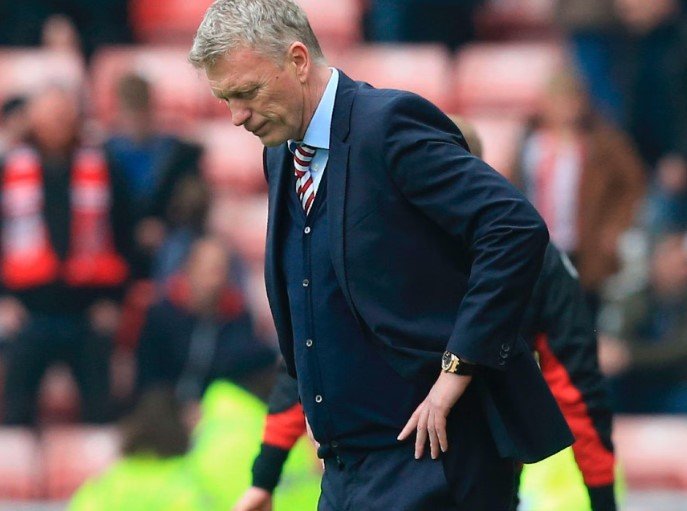David Moyes is walking back into the Stadium of Light, and it’s more than just another away fixture. For the Everton boss, Monday night in Sunderland stirs ghosts of his toughest chapter — one that nearly drove him away from football altogether.
Back then, in 2017, Moyes left Wearside shattered, his reputation dented, his confidence barely hanging on. Now he returns with Everton, older, steadier, and maybe a little wiser. “Football can sicken you if you’re not careful,” he said this week. “But you’ve got to stay resolute.”
The scars of Sunderland still sting
For Moyes, Sunderland wasn’t just a bad spell — it was a storm. His 10 months there produced only six Premier League wins. Relegation followed, and so did resignation. But not out of anger, he says — out of duty. The club was drowning in debt. He didn’t want to add to it by taking compensation. That part, people sometimes forget.
He admits it still hurts. “I knew early on it would be difficult,” he said. “The club was changing. The money wasn’t there. But I wanted to stay, to see it through.”
Ten months of grind. That’s all it was. Every defeat cut deeper than the last.
Even now, Moyes remembers the faces of those Sunderland fans — loyal, hopeful, tired of heartbreak. “I met good people,” he said. “But we were just on the decline. It was hard to stop.”

From Old Trafford to the Stadium of Light, and down again
It’s easy to forget how fast Moyes fell. From being handpicked by Sir Alex Ferguson in 2013 to being dismissed by Manchester United less than a year later. Then came Real Sociedad. Then Sunderland. Three jobs, three blows.
That kind of run can break a manager. Moyes looked broken then — the spark gone, his voice low, his touchline energy drained. “You start questioning yourself,” said a former Sunderland staffer, who worked under Moyes in 2016. “You wonder if you’ve lost your way.”
At 62 now, he can talk about it with a mix of pain and humor. “You learn who you are,” he says. “Football’s full of people who’ve had a dip and come back.”
Actually, his comeback story started quietly. A return to West Ham. No fuss, no slogans — just graft.
Building back with West Ham and Everton
Moyes didn’t rush into redemption. He earned it. At West Ham, he built a side that fought hard, finished high, and even made it to Europe. Not bad for someone once written off as “yesterday’s man.”
He then returned to Everton, the club where he made his name, and helped them dodge relegation last season. Not glamorous work, but crucial.
Here’s a quick snapshot of Moyes’ managerial journey since leaving Sunderland:
| Club | Years | Notable Achievement |
|---|---|---|
| West Ham United | 2017–18, 2019–2023 | Guided club to Europa Conference League title (2023) |
| Everton | 2023–Present | Steered team clear of relegation, restored defensive structure |
| Sunderland | 2016–2017 | Faced relegation amid financial turmoil |
| Real Sociedad | 2014–2015 | Mid-table finish in La Liga |
| Manchester United | 2013–2014 | Dismissed after 10 months |
Every line of that table tells a story of rebuilding — sometimes painfully slow, but always upward.
Still, Moyes doesn’t sound bitter. “You take what comes,” he said. “You accept that some things don’t go your way. But you learn. Always.”
The emotional weight of returning to Sunderland
For all his experience, Monday night will be different. The same stadium. The same tunnel. Even the same seats where he sat in silence after relegation was confirmed.
Everton fans might see it as another fixture. For Moyes, it’s unfinished business in his heart. He hasn’t been back since 2017. The return feels like closing a chapter he left open too long.
He admits, “It’ll be emotional. You don’t forget places where you’ve failed.” Then he adds, half-smiling, “But maybe now it feels like part of me needed to go through that.”
That honesty is rare. Managers often hide their scars behind clichés. Moyes wears his on his sleeve.
How failure shaped his managerial mindset
You could argue Moyes’ best trait today — his composure — was forged in failure. He knows panic helps no one. He’s seen chaos up close, at United, in Spain, and in Sunderland’s crumbling back rooms.
Those memories, he says, made him tougher. “I’ve been through enough to know that you just keep your head down and work,” he said this weekend. “You can’t dwell.”
Football people say it’s easier said than done. But Moyes seems to mean it. Everton’s squad, now built around grit and efficiency, mirrors his own evolution — less flash, more substance.
Key takeaways from Moyes’ reflection:
-
Past failures can build resilience when handled with humility.
-
Financial instability often hurts managers more than tactics do.
-
Emotional burnout in football is real — and rarely discussed.
He’s right about that last point. Burnout isn’t talked about much in football. It’s hidden behind bravado. But Moyes’ line — “football can sicken you if you’re not careful” — cuts straight through that silence.
Sunderland then, Everton now: two different worlds
Today’s Sunderland are far from that 2017 version. Rebuilt under new ownership, stabilizing in the Championship, hopeful again. Everton, meanwhile, still fight their own battles — points deductions, financial strain, and a tough Premier League schedule.
But Moyes insists he’s at peace. “You can’t rewrite it,” he said. “You just move on.” That’s him in a nutshell — stoic but soft-spoken.
And yet, as he walks out of the tunnel at the Stadium of Light, the memories will come flooding back — the noise, the tension, the disappointment. The same stadium where dreams once turned to dust might just offer a small moment of redemption.
A full circle moment
Football is funny that way. It gives you heartbreak and hope in the same breath. Moyes knows that better than most.
If Monday ends in victory, he won’t gloat. If it ends in defeat, he won’t sulk. Either way, the game will go on, and so will he — older, maybe still scarred, but still standing.
Because that’s what football does. It knocks you down, then dares you to get back up again. And Moyes, whatever people think of him, always does.








